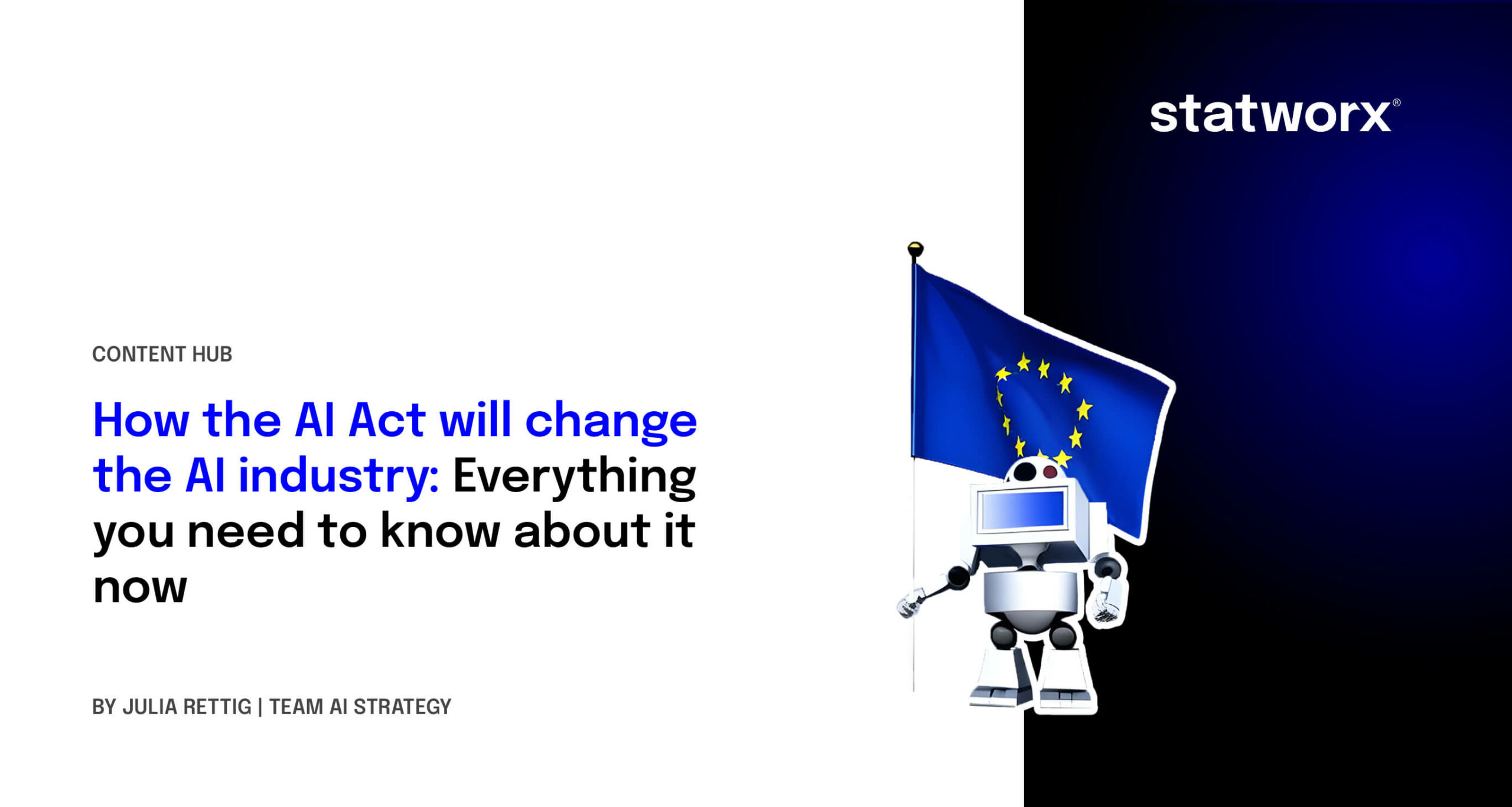Last December, the European Council published a dossier outlining the Council’s preliminary position on the draft law known as the AI Act. This new law is intended to regulate artificial intelligence (AI) and thus becomes a game-changer for the entire tech industry. In the following, we have compiled the most important information from the dossier, which is the current official source on the planned AI Act at the time of publication.
A legal framework for AI
Artificial intelligence has enormous potential to improve and ease all our lives. For example, AI algorithms already support early cancer detection or translate sign language in real time, thereby eliminating language barriers. But in addition to the positive effects, there are risks, as the latest deep fakes from Pope Francis or the Cambridge Analytica scandal illustrate.
The European Union (EU) is currently drafting legislation to regulate artificial intelligence to mitigate the risks of artificial intelligence. With this, the EU wants to protect consumers and ensure the ethically acceptable use of artificial intelligence. The so-called “AI Act” is still in the legislative process but is expected to be passed in 2023 – before the end of the current legislative period. Companies will then have two years to implement the legally binding requirements. Violations will be punished with fines of up to 6% of global annual turnover or €30,000,000 – whichever is higher. Therefore, companies should already start addressing the upcoming legal requirements now.
Legislation with global impact
The planned AI Act is based on the “location principle, ” meaning that not only European companies will be affected by the amendment. Thus, all companies that offer AI systems on the European market or also operate them for internal use within the EU are affected by the AI Act – with a few exceptions. Private use of AI remains untouched by the regulation so far.
Which AI systems are affected?
The definition of AI determines which systems will be affected by the AI Act. For this reason, the AI definition of the AI Act has been the subject of controversial debate in politics, business, and society for a considerable time. The initial definition was so broad that many “normal” software systems would also have been affected. The current proposal defines AI as any system developed through machine learning or logic- and knowledge-based approaches. It remains to be seen whether this definition will ultimately be adopted.
7 Principles for trustworthy AI
The “seven principles for trustworthy AI” are the most important basis of the AI Act. A group of experts from research, the digital economy, and associations developed them on behalf of the European Commission. They include not only technical aspects but also social and ethical factors that can be used to classify the trustworthiness of an AI system:
- Human action & oversight: decision-making should be supported without undermining human autonomy.
- Technical Robustness & security: accuracy, reliability, and security must be preemptively ensured.
- Data privacy & data governance: handling of data must be legally secure and protected.
- Transparency: interaction with AI must be clearly communicated, as must its limitations and boundaries.
- Diversity, non-discrimination & fairness: Avoidance of unfair bias must be ensured throughout the entire AI lifecycle.
- Environmental & societal well-being: AI solutions should have a positive impact on the environment and society as possible.
- Accountability: responsibilities for the development, use, and maintenance of AI systems must be defined.
Based on these principles, the AI Act’s risk-based approach was developed, allowing AI systems to be classified into one of four risk classes: low, limited, high, and unacceptable risk.
Four risk classes for trustworthy AI
The risk class of an AI system indicates the extent to which an AI system threatens the principles of trustworthy AI and which legal requirements the system must fulfill – provided the system is fundamentally permissible. This is because, in the future, not all AI systems will be allowed on the European market. For example, most “social scoring” techniques are assessed as “unacceptable” and will not be allowed by the new law.
For the other three risk classes, the rule of thumb is that the higher the risk of an AI system, the higher the legal requirements for it. Companies that offer or operate high-risk systems will have to meet the most requirements. For example, AI used to operate critical (digital) infrastructure or used in medical devices is considered such. To bring these to market, companies will have to observe high-quality standards for the used data, set up a risk management, affix a CE mark, and more.
AI systems in the “limited risk” class are subject to information and transparency obligations. Accordingly, companies must inform users of chatbots, emotion recognition systems, or deep fakes about the use of artificial intelligence. Predictive maintenance or spam filters are two examples of AI systems that fall into the lowest-risk category “low risk”. Companies that exclusively offer or use such AI solutions will hardly be affected by the upcoming AI Act. There are no legal requirements for these applications yet.
What companies can do for now
Even though the AI Act is still in the legislative process, companies should act now. The first step is to clarify how they will be affected by the AI Act. To help you do this, we have developed the AI Act Quick Check. With this free tool, AI systems can be quickly assigned to a risk class free of charge, and requirements for the system can be derived. Finally, it can be used as a basis to estimate how extensive the realization of the AI Act will be in your own company and to take initial measures. Of course, we are also happy to support you in evaluating and solving company-specific challenges related to the AI Act. Please do not hesitate to contact us!
Benefit from our expertise!
Of course, we are happy to support you in evaluating and solving company-specific challenges related to the AI Act. Please do not hesitate to contact us!
